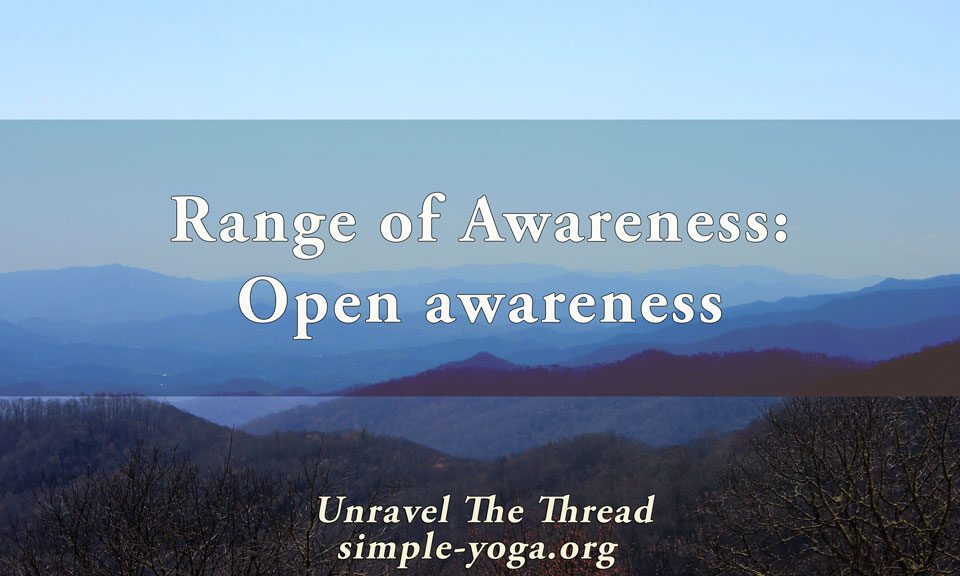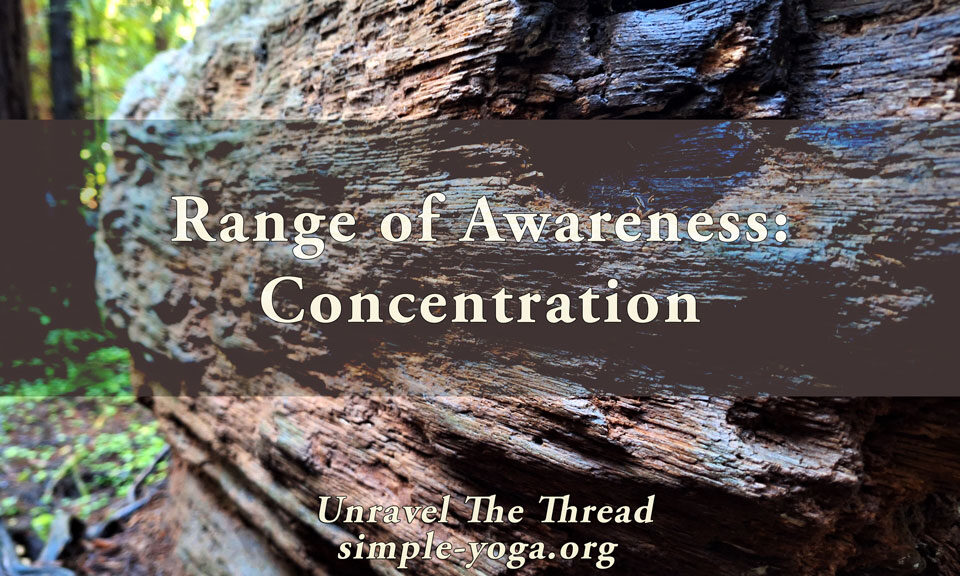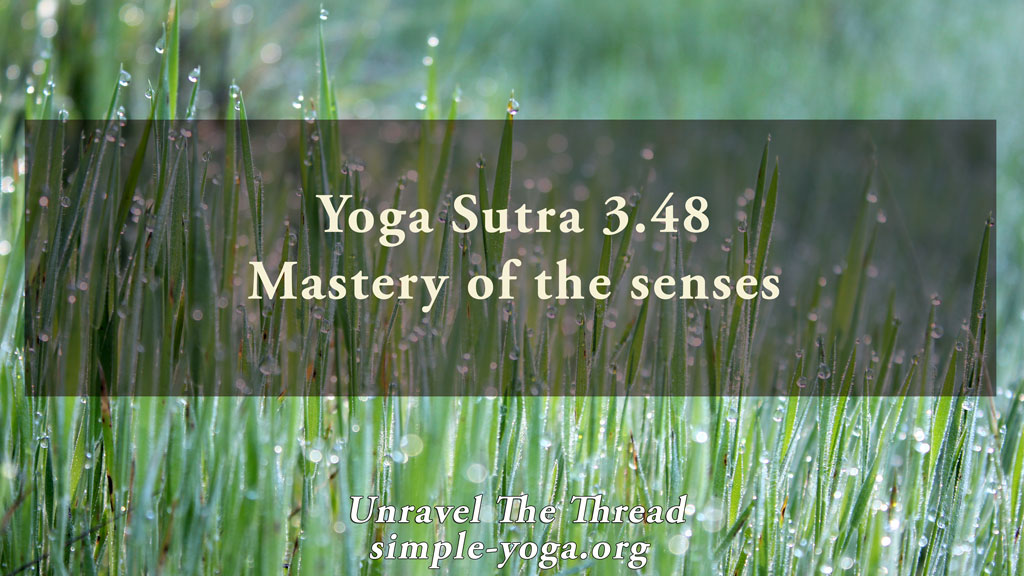
3.48 Mastery of the senses
March 26, 2022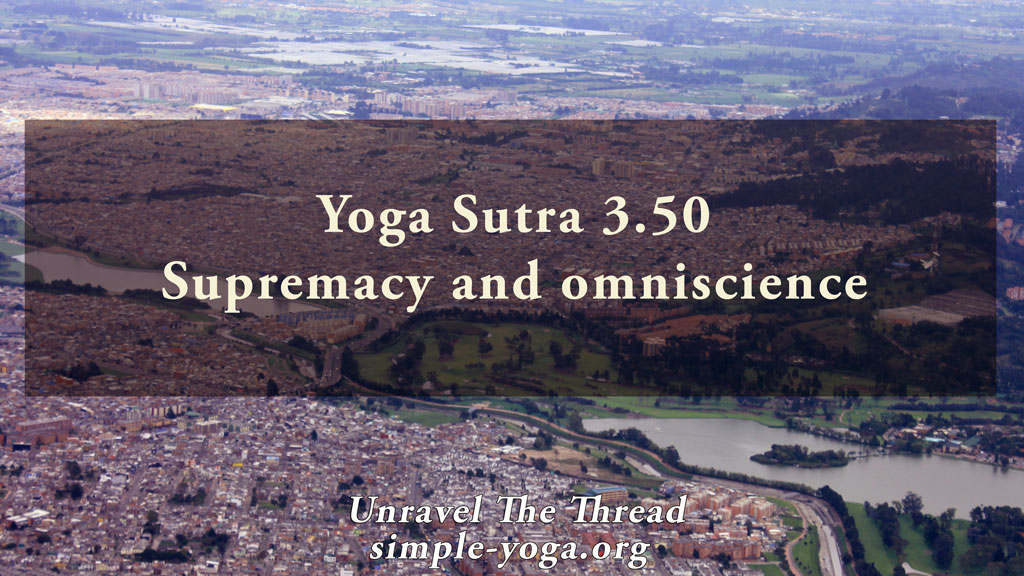
3.50 Supremacy and omniscience
April 19, 20223.49 Mastery of nature
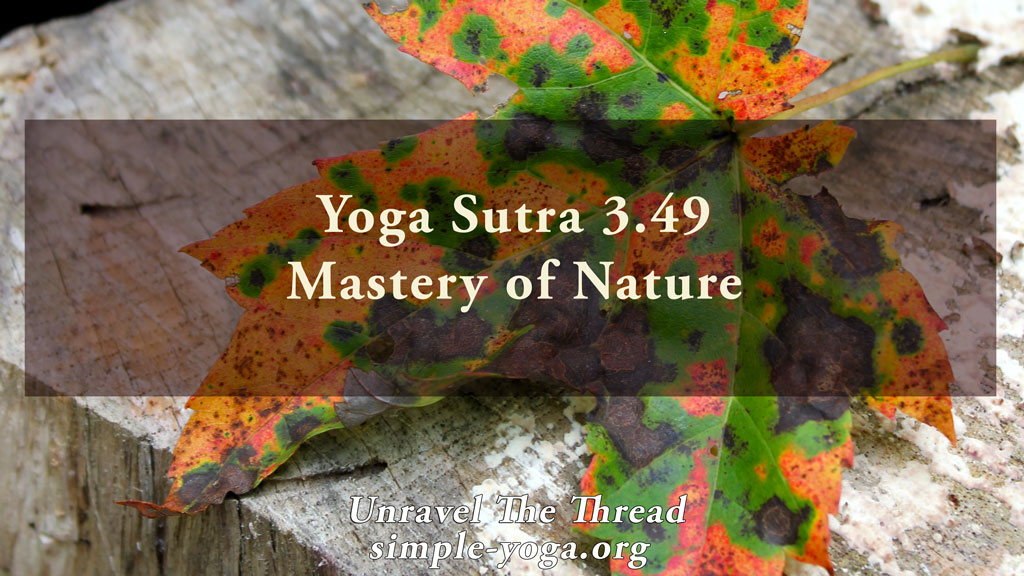
3.49 Consequently, a body as fast as the mind, independence from sense organs and mastery over the creative principle of nature (pradhana).
These highest attainments challenge everyday notions. As a result of mastery over the sense organs, the body can move as fast as the mind, regardless of distance or circumstance. Independence from the sense organs has been interpreted as the ability to perceive without using one’s sense organs. Some commentators indicate that the practitioner has the capacity to generate an organ when needed. One of the sutras in Chapter Four of the Yoga Sutra, will refer to this ability to create a body at will. The final achievement is mastery over the essence of life (pradhana). Here again there are different opinions. Some commentaries say that this mastery means that the yogi has the power to control nature. A typical objection is that wanting to control nature shows that there is still attachment to the world. A different viewpoint suggests that the yogi can use this power to fulfill their purpose to be of service. These questions can be useful in your exploration:
What is your relationship to life’s creative principle?
Do you try to control life?
Or do you embrace life in all its forms unconditionally?
As usual, one more way of exploring the meaning of this sutra is by chanting it.
You can choose to chant it in its traditional form with some of the words coming together:
3.49 tato manojavitvaṃ vikaraṇabhāvaḥ pradhānajayaśca
ततो मनोजवित्वं विकरणभावः प्रधानजयश्च ॥४९॥
Another option is to chant each word in the sutra individually:
- tataḥ
- manaḥ
- javitvaṃ
- vikaraṇa
- bhāvaḥ
- pradhāna
- jayaḥ
- ca
If you prefer, you may listen to the podcast:
This is an excerpt from the book Unravel the thread: Applying the ancient wisdom of yoga to live a happy life
If you find Simple-Yoga.org and Unravel the thread useful, consider supporting my labor with a donation, you may also donate using PayPal or Venmo. Thank you!


